
|   |

|   |
The International Theatre Fest 2012 - Padma Jayaraj, Thrissur e-mail: padmajayaraj@gmail.com February 24, 2012 International art festivals have become a regular feature of global interaction in our small world. The International Theatre Festival of Kerala 2012 at Sangeetha Nataka Akademi complex in Thrissur from February 1 to 8 was the fourth edition of an ongoing annual fiesta. The festival focused on classics and contemporary world theatre. An overwhelming presence of cultural activists and theatre persons from all over Kerala and all across the world was its prominent characteristic. The plays presented ranged from Kalidasa to wordless theatre, from Sanskrit to digital scenography. 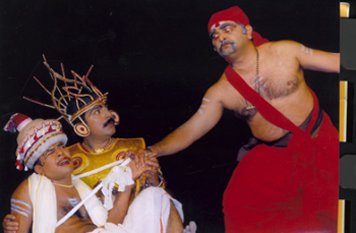 Malavikagnimitram Kalidasa’s Malavikagnimitram was the inaugural piece. The play stirred up universal features in classical dimensions in the hands of a master of theatre, Kavalam Narayana Panikker. The original five act play was reduced to two acts with features of classical Kerala theatre like Koodiyattam, Kathakali, Chakyarkoothu. The technical aspects of an Indian classic were kept intact with the Vidushaka interpreting the Sanskrit language of the noble characters with sparkling wit and pun. The dirty politics in high places seem to have remained the same in spite of the march of centuries. The Asoka tree which is central to the play keeps the events of the Ramayana in the background, foregrounding the fascination of men for women down the ages. The use of music almost deleting the use of lighting is a special feature of the play. 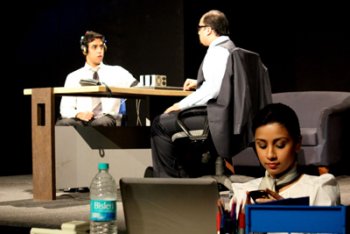 The Interview The Interview (Akvarious Production, Mumbai) directed by Akarsh Khurana is a grim play that focuses on corporate culture that rules the roost today. Unseen strings strangle talented young people killing the humanity in them. The travails of the middle class who seek opportunities in the corporate world in contemporary metros of India, is the subject of the play. In the process the play ponders on human weaknesses and explores the meaning of love, happiness and relationships. The one act play was tightly crafted with the sequence of five turning points in its evolution. In the middle of the drama, a surprising turn of events occurs. In a turning of the tables, the interviewer is interviewed by the candidate. 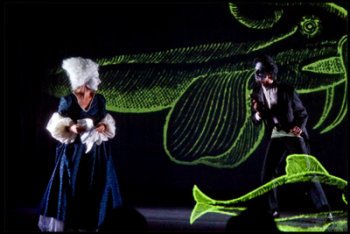 Twenty Thousand Leagues Under the Sea Twenty Thousand Leagues Under the Sea, (Theater Potlach, Italy) directed by Pino Di Buduo mesmerized the spectators with the magic of technical brilliance of digital scenography. The digital projections with the latest LED lights took the viewers to the depths of the sea bed with 3D effects. The fantastic play is a success as it is a multi-disciplinary artistic project where theatre, music, video art and scenography converge to create the world of science fiction. 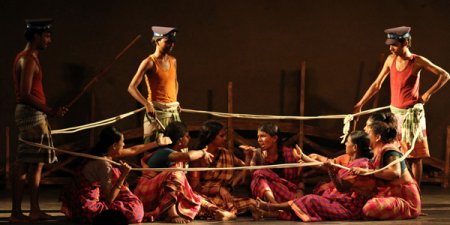 Molagapodi Molagapodi (Kattiyakari, Tamilnadu) directed by Srijith Sundaram is the voice of the Dalit. It dramatizes the problems of marginalized communities, the social realities of rural India where caste, gender and class make life almost impossible. Women in their day to day activities of livelihood celebrate simple joys of life amidst stark poverty. It is their subversive humor and the power of survival that keep them heroic. The play is the political and polemical dramatic articulations that speak to its time. 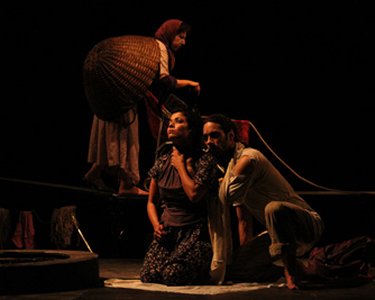 The Water Station The Water Station (Theatre Roots & Wings, Thrissur) directed by Sankar Venkateswaran is wordless performance. It is the story of flight. Eighteen travelers cross a barren land in glacial slowness. Their body languages reveal their basic nature, each distinct and different from the other. The water pipe with a symbolic dimension stands for the basic need of life, which when satisfied awakens the strong urges in human nature. The smothering silence paints the unspeakable and the unspoken aspect of human nature. Silence, the universal language, speaks of the loneliness in the human heart. Stillness rips away personality patterns allowing the actor to express the primal image of character. The sound of water, music and lighting orchestrate the entire drama elevating it to poetic levels. Without a conventional ending the play remains a metaphor for mass migration in human history. The presentation is more suited to intimate theatre. Odysseus Chaoticus (ISH Theatre, Israel) directed by Maria Nemirovesky is a fantastic cabaret show with gibberish as its medium of communication. A romantic dreamer, his dominating but loving wife, a needy papa and a noisy newborn infant are the cast of this superb comedy. Defying all the latest technology, human imagination soars high navigating through the epic signposts in The Odysseus. The ingenuous use of props and mime make the performance unique. 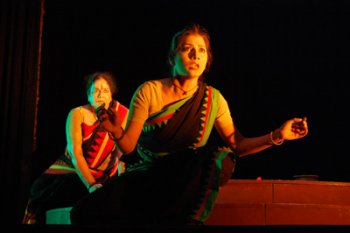 Chandalika Chandalika (Rangakarmee, Kolkata) directed by Usha Ganguli, actor, dancer and choreographer, is Tagore against social evils, especially caste discrimination. Proto history speaks of the special talents and powers of the aboriginal. Caste has been used as a tool to relegate them to the margins. A young girl in the shock of recognition of her innate dignity falls in love with the Buddhist monk who drinks water from her hands. Set against the backdrop of Buddhist principles, the play upholds the nobility of love and dignity of human beings against the indignity of caste, a curse from which India suffers even now. 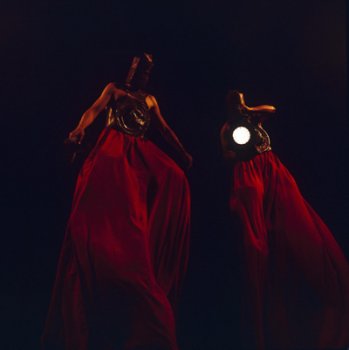 Kreutzer Sonata Kreutzer Sonata (Juozas Militinis Theatre, Lithuania) directed by SauliusVarnas, is cast more in the form of a monologue which explores the problems of fidelity within marriage. In spite of a power point presentation, the demands of language on an alien people made the stage show less effective for the people of Thrissur. 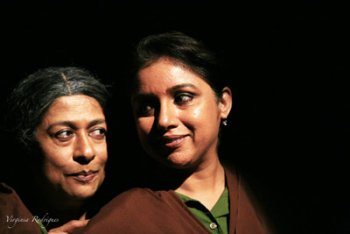 The Afterlife of Birds The Afterlife of Birds (Indian Ensemble, Bangalore) directed by Abhishek Majumdar is the dramatization of the angst of citizens fighting against the State. Against the background of a known event in the movement of LTTE, the play projects the tragedy of bravery against moving generations. The failed movements in history gather an ironic dimension. Life of women in jail and how such life affects the ethos of womanhood is a sad narrative. The craft of staging multiple scenes using light is an interesting experiment. The evenings were set apart for performances while daytime saw discussions, seminars, Face to Face, festival book and folk items from different parts of India. The weeklong festival proved to be a carnival for the art lovers and theatre buffs in the Sangeetha Nataka Akademi complex in Thrissur. Padma Jayaraj is a freelance writer and a regular contributor to narthaki.com |